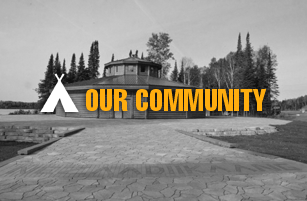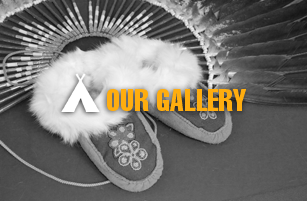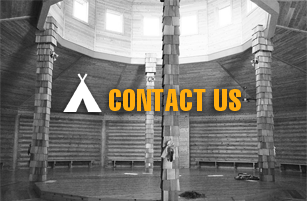COMMUNIQUE
To: LDMLFN Band Members
From: LDMLFN Housing Committee
Jackie Peters, Councillor Tracy Morrison, Councillor Carmel Zoccole,
Rikka Berkan, Mark Sawdo and Tom Lebel
Date: February 22, 2018
Housing Update & Questions Answered
Thank you once again to everyone who took the time to send in their questions regarding the Housing Policy and By-Laws. The discussions that came out of the presentation and questions submitted, were very helpful and have been incorporated into the policy. We have now completed the review period, which was extended to six weeks, to accommodate those individuals who had requested an extension. The review period is now closed and we will continue on with the necessary steps in order to have the final Housing Policy & By-Laws ready for distribution March 1, 2018. We would like to remind everyone that the Housing Policy is a living document that can be amended, with scheduled reviews every three years or annually as required.
We are pleased to provide a final Q & A to ensure all questions that were sent in, are addressed. We would also like to mention that many hours of dedicated work have gone into building this policy, with the ultimate goal of helping our members and community succeed as we prepare to redevelop our lands. With this in mind, we respectfully ask that you address any/all future correspondence and questions regarding the Housing Policy, to the Housing Committee as we have been given the mandate to conduct this work. The Housing Committee is best equipped to address your concerns and assist you as we move forward.
Please find the additional Q & As:
Question: What does “in good standing” mean in reference to the requirements/eligibility to apply for the lot lottery?
Answer: A “member in good standing” is an individual who does not have any debt with the FN. This is currently not an issue with the FN however once we have established on reserve housing, we may have situations where a homeowner neglects or abandons their home and the FN has to step in to maintain or safeguard the building. The cost to maintain or safeguard the building would be billed to the homeowner and if the debt was left unpaid, they would not be a member in good standing. For example, if the house catches fire and the homeowner has no insurance and subsequently abandons the property, the FN might be left with the cost of cleanup. So any member, who has debt with the First Nation, will have to clear that up before they would be considered a “member in good standing.”
Question: The policy states that the Housing Committee may request additional information and other relevant documents on an as needed basis, as part of the application procedure. What kind of information could the Housing Committee request?
Answer: The Housing Committee will only request information from the members that relates specifically to their proposed plan to build a home. Here are some examples of “what kinds of information could be requested.” (A) If someone submits an application that has not included enough information to adequately describe their building plans; we will ask for more information on their plan. (B) Or if the cost breakdown doesn’t add up to what a 2 bedroom, 1000 square foot home normally costs; we might ask them to explain why their cost is so much lower and to provide this in their plan. (C) Or if the letter received from the bank is too vague and doesn’t confirm that the individual is in a position to adequately finance their build; we might ask that they go back to their bank and ask for a second letter that better confirms their financial capability. We would do this so that the applicant can meet the requirements of the application, rather than be denied because they were missing information. This is in the best interest of the applicant.
Question: In order to fulfill the Inspection Requirements Checklist, all inspections must be in accordance with the Ontario Building Code and completed by a designated inspector. Who is the designated inspector?
Answer: Bimose Tribal Council provides support at no cost to its member First Nations, in regards to compliance inspections on new construction, additions and renovations for each of the following stages: Plan Evaluations; Energy Evaluations; Site Development; Foundation; Framing; Plumbing; Blower Door Testing; Insulation/Vapor Barrier; Final Inspection; other (as required). As well, Bimose Tribal Council also provides advisory services on preparing housing drawings and specifications for construction and renovations.
The contact at Bimose is Chris Price – Technical Services Officer, (807) 468-5551, cprice@bimose.ca He assures us that he is happy to assist all of our members as we start to rebuild. This is a free service offered to the FN but it is not required that you go through Bimose. Anyone choosing to hire their own inspector may do so, however a copy of their inspector’s credentials must be provided to the Housing Committee.
Question: What happens if the Ontario Building Code changes mid-construction and the home owner doesn’t have a building permit to fall back on?
Answer: The First Nation does not issue building permits, however Step 1 of Appendix G, the Inspection Requirements Checklist, is the Plans Inspection. Once this is signed off on, it is a binding contract between the homeowner and the inspector. If the building code changes mid construction, the homeowner is covered under the Plans Inspection. If construction is taking longer than indicated in the original Plans Inspection it is important that the homeowner notify their inspector. As long as they remain in contact with their inspector they will be covered under the initial Plans Inspection.
Question: What type of insurance do I need during the construction phase of my build?
Answer: You will be required to have Builder’s Risk insurance during your build. You can get Builder’s Risk insurance for homeowners, for contractors, and for owner builders. It provides coverage for property loss during the course of construction. It is necessary if you plan to finance all or part of your construction costs. Some insurance companies will cover construction of your new build/home under your standard homeowner’s policy. If it is not covered under your standard policy, you will need to apply for it separately. It typically covers damage due to fire, lightning, windstorm, hail and vandalism. It doesn’t cover liability or content coverage.
General liability insurance is designed to protect against third party liability claims such as a neighbour’s child entering your construction site and hurting themselves. If you are using a contractor, they should provide the Builder’s Risk insurance and General Liability Insurance. If you are not using a contractor, keep in mind that owner builders are legally responsible for conduct and damages on the jobsite and can be sued for negligence should an accident happen. General Liability insurance will protect you against this.
If you are using a contractor who has employees working on site, you will need to obtain a copy of their WSIB clearance certificate. Without this, employees who are injured on site can go after the contractor or the homeowner. Please note that insurance professionals will be at our Housing Fair to further address any additional questions you may have on this matter.
Question: I know the review period for the Housing Policy was extended. Can we further extend the deadline until all registered members are able to review or attend an in person meeting? Moreover can the FN cover the cost for out of town members to attend such a meeting?
Answer: The review period has already been extended to six weeks. This is a fair and reasonable amount of time for review. The notice for our Annual AGM/Community Meeting was posted on the First Nations website onDecember 19, 2017 and was mailed out to every band member on our mailing list, which included information on what was being presented. We held our AGM/Community meeting on January 8, 2018, with two sessions (4:00 – 6:00 and 6:00 – 8:00) to accommodate different work schedules. We had a good turnout and discussion. Thank you to everyone who came out!
For those members living out of town or who were unable to attend for other reasons, the Housing Committee has been available for discussion and to answer any/all questions or concerns put forward by our members. We also provided materials from the housing presentation to anyone requesting it.
The policy was posted to the website on January 4, 2018 and the housing presentation was posted on January 9, 2018 The Housing Committee has given adequate time to review the policy. As such, we are not planning another community meeting and will not be paying for out of town members to meet with us but we will remain available if anyone wishes to contact us.
Question: When doing renovations on my home in the city, I require permits and inspections. Will this be any different on reserve?
Answer: Not really. Although the FN does not issue permits, the homeowner is required to notify the Housing Committee of pending renovations. The Inspection Requirements Checklist, appendix G of the policy, also pertains to renovations or additions.
Question: The membership voted on the First Nation’s Custom Election Code and in the Referendum to accept the Flood Claim Settlement. Does the membership vote on this Housing Policy?
Answer: No, this is a policy of the First Nation. It is not a code where the membership votes and the code is then ratified. This is a document to guide us as we move forward in building a safe community for our families. It may/will change and grow as the community continues to grow. The policy exists to lay out the roles and responsibilities of the homeowner, the Housing Committee, and Chief & Council. It is in place to ensure a fair and impartial process of decision making and to create a consistency of practices and procedures. The Housing Policy will be an invaluable tool as our members relocate on reserve and come together in a physical community.
Question: I have heard that other First Nations just build homes for their members to live in, free of charge, why aren’t we doing this?
Some First Nations receive funding for housing starts based on their need to remedy the overcrowding on their reserve. We do not have overcrowding on our lands. It is important to point out that when a First Nation receives funding from INAC to build, for example 5 homes, that is only the beginning of a lengthy process regarding who gets to live in that home. The First Nation then chooses from a pool of on-reserve applicants/families who have been living in crowded, unsafe conditions, to best determine who gets that particular house. That family then pays the monthly rent and utilities for living in that house. The family does not own the home, but are rather renting the house from the Band. It is not rent free.
Question: Why doesn’t the FN just give out plots of land and lumber, equivalent to 100 trees, to every band member? I have heard of other FNs doing this.
Answer: This question has been asked of other First Nations in the Treaty #3 area, and no, this is not what other First Nations do. This would be poor management and judgement on the part of the FN. Please remember, that nowhere in the Indian Act does it say Band Members are entitled to a free house. The members that are preparing to build realize the cost involved and they understand that they will be physically and financially responsible to maintain their home and property. Otherwise these properties could fall into disrepair and become a Health & Safety hazard. The Housing Committee along with your Chief and Council are trying to avoid the pitfalls/mistakes of other First Nations and learn from their experiences when it comes to housing development.
We believe that the lot application process will help ensure that members who receive a lot are prepared to succeed at their endeavours. The responsibility of financing your own home should come as no surprise to the community. It was presented at our 2014 AGM, included in the November 2014 Housing Update and reiterated at our community sessions in June 2016.
Question: How will our elders, our young adults (just starting to build a credit rating), and our unemployed community members, be able to build or live on the reserve?
Answer: At this time there is no low-income housing available on reserve. The community needs to grow and essential services need to be in place before the FN can consider building rentals/apartments. For those who are just building their credit rating or those looking for work, there will be opportunities to obtain a lot in future lotteries. It is hoped that members who are able to build, will invite their families (grand-parents, parents, siblings, children etc) to visit and stay with them at their property.
As many of our members will still reside and maintain their homes in their various places of residence, we anticipate these first homes will be built with “family use in mind.” In the meantime, members are encouraged to book a stay at the Community Cultural Complex. The complex is open to all community members at no cost. It is a beautiful building and provides everyone with the opportunity to be on the water and to reconnect with the land. The First Nation has been offering the use of the Community Cultural Complex to our elders and families since it was built. Contact Mike Ignace to book your stay.
Question: When can we expect to see a map of the lots that are available for Phase One housing?
Answer: Our surveyor has just completed the drawings, which will include the remaining 11 lots (that are scheduled to be surveyed this spring) for the Phase One housing development. This brings the total number of water front lots on Lac des Mille Lacs to 24; the total number of lots facing and around the small inland lake to 14; and the total number of remaining lots, not on any body of water, to 14. We have designated the one lot (off the eastern shore of Popular Point) as “boat launching access” for all of our members. Click here for attached map.
Once again, we thank everyone for their feedback and look forward to receiving your application. The application process is open from March 8th – May 4th 2018.




